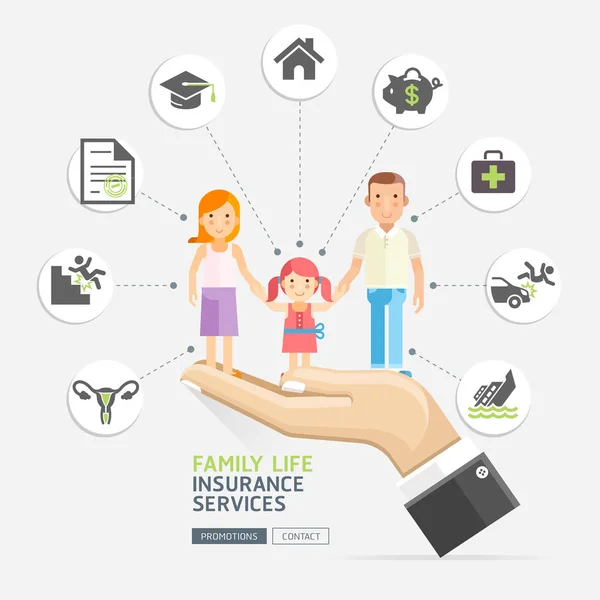Insurance auto auctions have become a significant avenue for purchasing vehicles at prices often below market value. These auctions offer a diverse range of vehicles, from lightly damaged cars to those deemed total losses. Understanding how these auctions operate, the types of vehicles available, and the associated risks and benefits can help potential buyers make informed decisions.

Key Takeaways
- Cost Savings: Vehicles at insurance auto auctions are often sold below market value, offering significant savings.
- Variety of Vehicles: A wide range of vehicles is available, catering to different needs and preferences.
- Additional Costs: Buyers should be prepared for additional expenses, including
Understanding Insurance Auto Auctions
What Is an Insurance Auto Auction?
An insurance auto auction is a marketplace where vehicles that have been declared total losses by insurance companies are sold to the highest bidder. These vehicles may have been involved in accidents, suffered from natural disasters, or experienced other forms of damage. The primary goal for insurance companies is to recover some of the costs paid out in claims by selling these vehicles at auction.
How Do They Operate?
Insurance auto auctions typically operate through both physical and online platforms. Buyers can participate in live auctions, where they place bids in real-time, or they can engage in online auctions, where bids are placed over a specified period. Once a vehicle is sold, the buyer is responsible for paying the bid amount, along with any applicable fees, and arranging for the vehicle’s pickup or delivery.
Types of Vehicles Available
Insurance auto auctions offer a wide variety of vehicles, including:
- Salvage Title Vehicles: Cars that have been declared total losses due to significant damage. These vehicles can often be repaired and re-titled as rebuilt.
- Recovered Theft Vehicles: Stolen vehicles that have been recovered, sometimes with little to no damage.
- Flood-Damaged Vehicles: Cars that have sustained water damage from floods or other water-related incidents.
- Fire-Damaged Vehicles: Cars damaged by fire.
- Hail-Damaged Vehicles: Cars damaged by severe hailstorms.
- Repossession Vehicles: Vehicles repossessed by financial institutions due to non-payment.
Each type of vehicle comes with its own set of considerations regarding repair costs, insurability, and resale value.
Benefits of Buying from Insurance Auto Auctions
Cost Savings
One of the most significant advantages is the potential for cost savings. Vehicles at insurance auto auctions are often sold for a fraction of their retail price. This means buyers can acquire vehicles at a lower cost, even after accounting for repair expenses.
Diverse Inventory
These auctions provide access to a wide range of vehicles, from everyday cars to luxury models. This diversity allows buyers to find vehicles that meet their specific needs and preferences.
Investment Opportunities
For individuals interested in vehicle restoration, insurance auto auctions present opportunities to purchase vehicles at low prices, invest in repairs, and potentially sell them at a profit.
Quick Ownership Transfer
The process from auction to ownership is usually swift. Once a bid is won and payment is made, the buyer can quickly take possession of the vehicle, facilitating faster repairs or resale.
Risks and Considerations
| Benefit | Description |
|---|---|
| Cost Savings | Vehicles are often sold below market value, allowing buyers to save significantly compared to retail prices. |
| Diverse Vehicle Options | A wide variety of vehicles are available, ranging from heavily damaged to minor damage, including luxury models. |
| Investment Potential | Buying salvage or lightly damaged vehicles allows for restoration and resale opportunities at a profit. |
| Quick Transaction | Once a bid is won and payment made, ownership transfer and vehicle pickup can occur quickly, speeding up the process. |
| Access to Unique Vehicles | Auctions provide access to vehicles that may not be available at regular dealerships, including repossessed or rare cars. |
| Opportunity for Rebuilding | Salvage cars can be repaired and rebuilt, offering a chance for buyers to invest in the restoration process. |
| Detailed Vehicle Information | Auctions often provide vehicle histories and inspection reports, helping buyers make informed decisions. |
Vehicle Condition
Many vehicles sold at insurance auto auctions are sold “as-is,” meaning there are no warranties or guarantees regarding their condition. Buyers should be prepared for varying levels of damage and potential repair needs.
Salvage Titles and Insurability
Vehicles with salvage titles can be more challenging to insure. While liability insurance is usually available, comprehensive and collision coverage may be limited or unavailable from some insurers. It’s essential to check with insurance providers before purchasing such vehicles.
Additional Costs
Beyond the winning bid, buyers may incur additional costs, including auction fees, transportation fees, and repair expenses. It’s crucial to factor these into the overall budget.
Legal and Registration Challenges
Some jurisdictions have specific regulations regarding salvage title vehicles. In certain areas, a salvage title may remain with the vehicle for its lifetime, regardless of repairs made. Understanding local laws is vital before purchasing.
How to Participate in an Insurance Auto Auctio
Registration
To participate, buyers must register with the auction house. This process may involve creating an account, providing identification, and, in some cases, paying a registration fee.
Vehicle Inspection
Before placing bids, it’s advisable to inspect the vehicles of interest. Many auctions offer preview days or online listings with detailed information about each vehicle’s condition.
Bidding
Bidding can occur in person or online. Buyers place bids on vehicles they wish to purchase, and the highest bid at the close of the auction wins.
Payment and Pickup
After winning a bid, buyers are required to make prompt payment, usually through certified funds. Once payment is received, arrangements can be made for the vehicle’s pickup or delivery.
Also Read : Can You Really Save Money Buying from Insurance Auto Auctions?
Conclusion
Insurance auto auctions present opportunities for buyers to acquire vehicles at lower prices than traditional retail markets. However, these opportunities come with associated risks, including potential repair costs, challenges with insurability, and legal considerations regarding salvage titles. By conducting thorough research, understanding the auction process, and being prepared for additional expenses, buyers can make informed decisions and potentially benefit from the advantages these auctions offer.
Frequently Asked Questions (FAQs)
1. Who can buy vehicles at insurance auto auctions?
Depending on the auction house, buyers can include individuals, car dealers, auto repair shops, and salvage yards. Some auctions are open to the public, while others may require a dealer’s license to participate.
2. Can I inspect vehicles before the auction?
Yes, most auction houses allow potential buyers to inspect vehicles before the auction. This can be done in person during preview days or through detailed online listings and third-party inspection reports.
3. Are there financing options available?
Financing options may be limited at insurance auto auctions. Most auction houses require full payment shortly after the auction ends. However, some auctions may offer financing through third-party lenders. It’s best to arrange financing beforehand if needed.
4. What types of vehicles are sold at these auctions?
Insurance auto auctions sell a variety of vehicles, including salvage title vehicles, recovered theft vehicles, flood-damaged vehicles, fire-damaged vehicles, hail-damaged vehicles, and repossession vehicles.
5. What costs are involved in buying a vehicle at an insurance auto auction?
In addition to the bid amount, buyers should be aware of the following costs:
- Auction Fees: These can include buyer’s premiums, processing fees, and any additional service fees.
- Transportation Costs: If you need to transport the vehicle from the auction site to your location.
- Repair Costs: The cost to repair the vehicle to make it roadworthy, if necessary.
- Taxes and Registration Fees: Fees required to register the vehicle and pay any applicable sales taxes.
6. Can international buyers participate in insurance auto auctions?
Yes, many insurance auto auction platforms offer international buyers the flexibility to participate in car auctions online either directly or through a broker, with support available in multiple countries.
7. What should I consider before bidding on a vehicle?
Before bidding, it’s essential to thoroughly inspect the vehicle’s condition, review its vehicle history report, and set a budget for bidding. Additionally, consider any potential repair costs and legal requirements associated with salvaged vehicles in your area.








